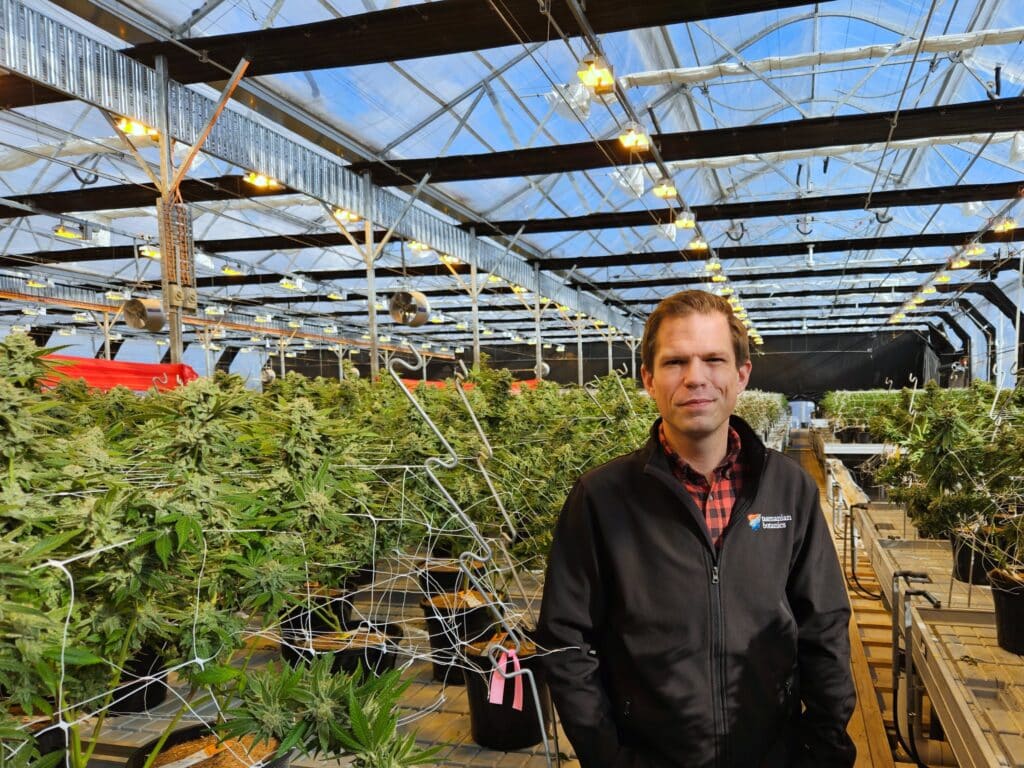While legalising cannabis has become a talking point in Australia, removing decades of stigma remains the challenge. Dropping the ‘recreational user’ label would be a good start, argues Tasmanian Botanics CEO Dan Howard.
Over the past few months, the conversation around the possible legalisation of cannabis in Australia has grown a little louder.
The Green Party, both federally and in New South Wales, has introduced bills to legalise adult use, while the Legalise Cannabis Party has coordinated efforts across three states to allow small amounts for personal consumption.

That is all well and good, yet I fear the bills will face familiar opposition and encounter the same stigma that has unjustly demonised cannabis and the people who use it for decades.
This needs to stop.
Adult use, not recreational
Stigma around cannabis presents itself in various ways, and it starts with the term ‘recreational’. I resent that term. I have an adverse reaction when people say, “well that person is a rec user”.
Sometimes, the word is used to differentiate illicit use from those who seek legal medicinal cannabis from GPs, but often it is used to label a consumer who looks or speaks a certain way. It is a word laced with negative ‘stoner’ connotations.
People consume all sorts of different active substances for many different reasons. Maybe you have a double espresso in the morning to help you focus, many might enjoy a glass of wine or a couple of beers in the evening after a long day at work to reduce their stress levels or relax.
That is not stigmatised in the way cannabis is, even though cannabis performs the same type of role and is arguably less harmful.
If a product is safe and is consumed in a responsible way by an informed adult, who am I – or anyone for that matter – to say what is and what isn’t an acceptable use?
If someone is feeling anxious, or they need help sleeping at night, should they not be free to consume a safe, regulated product that gives them relief?
If it makes someone feel better does that not make it therapeutic? We normalise half bottle of wine every night – but demonise two puffs on a vape pen before bed.
Just because someone may not be taking a pharmaceutical product, or have not been formally diagnosed by a doctor, does not mean the benefits they receive aren’t real.
I’ll tell you this, if they told their GP ‘I’m highly anxious’ or ‘I have trouble sleeping’ they’d have a prescription for benzodiazepines/sedatives and other psychoactive medication faster than you could blink.
I feel that people who are using cannabis for anything other than cancer or MS are viewed as stoners or ‘recreational’ users. And that’s just not right.
Educating doctors
What also needs to change is this concept of telling patients, and doctors, what a medicine should look like. What we should be focusing on is educating health care professionals on what medicine could look like.
We have a preconceived notion of a medicine’s appearance because that’s what we’ve been conditioned to expect.
The pharmaceutical veterans in the cannabis industry put a lot of energy into telling people what they should want, that cannabis should be a white pill, or a soft gel capsule, or a wafer.
But I’m not in the market to dictate what people should want, or what their medicine should look like. That’s a big pharma mentality.
It’s my job to listen to what patients and doctors want and fill those needs. What are doctors prescribing? What types of products are meeting patient needs? That’s what we’ll listen to at Tasmanian Botanics. And at the moment that product is predominantly flower.
The argument is that a more pharmaceutical-looking product will help grow and legitimise the market as more doctors will prescribe it. But how can it grow the market if that’s not what is proving to be effective treatment for patients? What is more legitimate than improved patient outcomes?
There are already enough formats of medicinal cannabis to cover the main routes of administration, being oral consumption and pulmonary absorption.
In general, softgel capsules containing cannabis oil will not work better than an oral solution of cannabis oil. Yes, there are emulsions that improve onset time and bioavailability, but that’s building a better mousetrap when we should be focused on proving this is a mouse worth catching.
And just because it looks like a pill doesn’t mean it will make you qualify for the Pharmaceutical Benefits Scheme.
We, as an industry should be focused on simplifying the cannabis landscape – and drive the messaging around how cannabis can significantly improve consumer outcomes both on its own and when combined with modern western medicine.
At Tasmanian Botanics, we are focused on growing and manufacturing products that provide the effective therapeutic benefits that Australians want, that is high quality and affordable.
If we do that – and we are – doctors will prescribe it and people will buy it. We’re addressing the needs of the market, and helping people gain access to cannabis that enables them to lead a better life.
If the people of Australia decide that should be easier for responsible adults to access, I believe that’s a step in the right direction.
